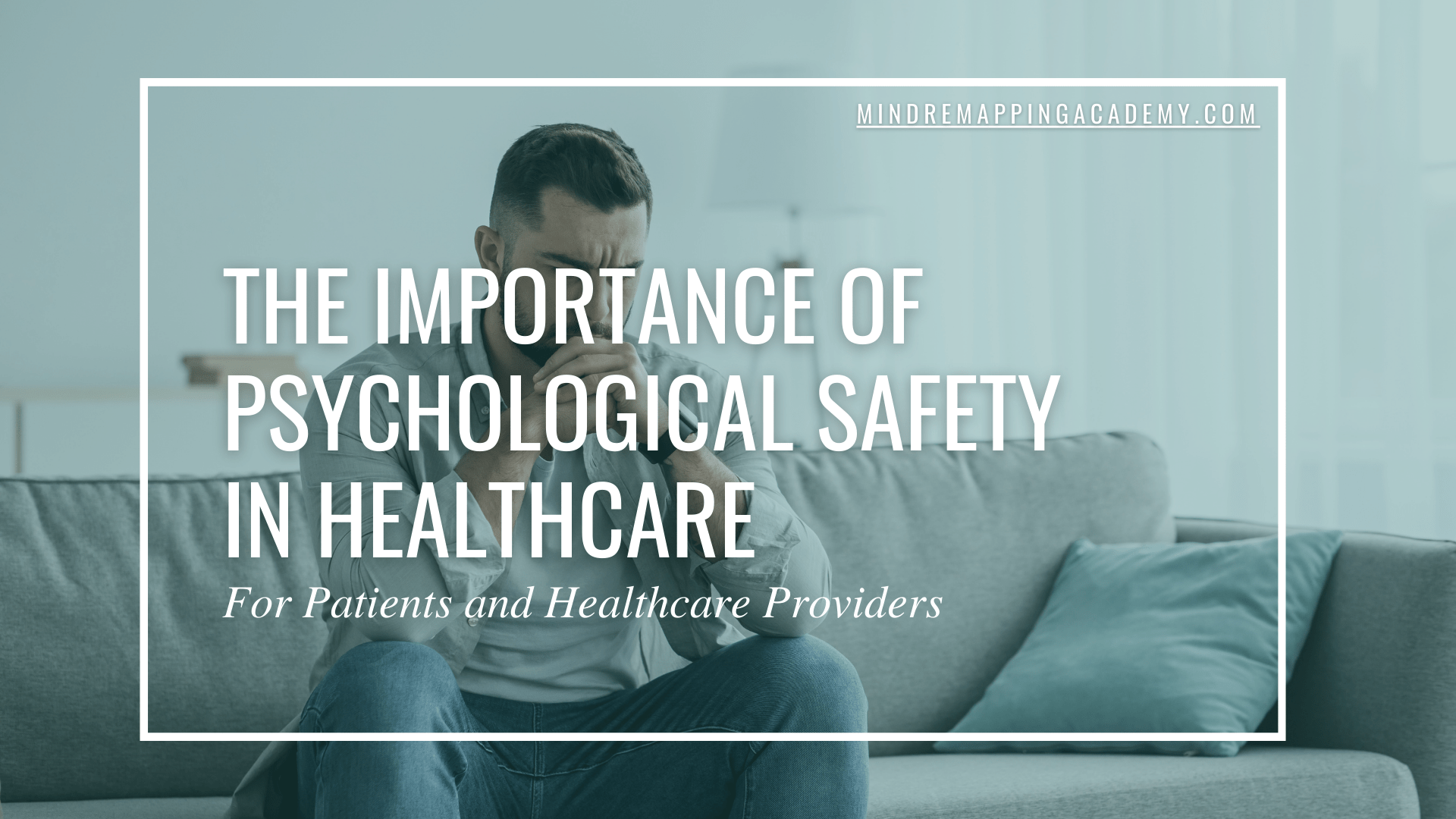
The Importance of Psychological Safety in Healthcare
For Patients and Healthcare Providers
Psychological safety, a term popularized by Harvard Business School professor Amy Edmondson, refers to an environment where individuals feel safe to voice their thoughts, concerns, and even mistakes without the fear of retribution or humiliation. In such a setting, people can express themselves authentically, fostering trust and open communication. While it’s not unique to healthcare, the experience of feeling psychologically unsafe contributes to burnout, disengagement, and compromised mental well-being in doctors and healthcare workers, and is a major source of mistrust of in the healthcare system by patients.
When psychological safety is threatened or absent altogether, people don’t feel safe to be or express themselves, make mistakes, or challenge the “status quo”. For patients this means they may not be completely transparent with their doctors or healthcare providers, or they may not seek care at all because of mistrust of the system due to past harm that has been done to them personally or due to the historical harm to members their community. Imagine feeling like you can't trust the very system that's supposed to keep you healthy. For many individuals in historically marginalized communities, this is a stark reality.
For physicians and healthcare providers, lack of psychological safety may mean that they cannot speak up when they feel a patient or colleague is being wronged or discriminated against. They may not feel safe to say when they are not at their best, or they may not feel safe to take risks or step outside of the status quo for fear of making a mistake or being humiliated and ridiculed. The fact is the culture of medicine in general has not been great at making it a safe place to be human for any physician. Unfortunately, this has caused burnout and moral injury among physicians and providers of healthcare to continue to be a problem that is continuing affecting the health and well-being of our colleagues.
Why We Need to Start Talking About Psychological Safety in Healthcare Whether a patient or healthcare provider, lack of psychological safety is a health equity issue. Medical mistrust, deeply rooted in historical injustices and violence, is a significant barrier to achieving health equity. Burnout and moral injury has led to masses of physicians leaving medicine or transitioning to non-clinical careers. For both patients and healthcare providers alike lack of psychological safety impacts the following:
For Mental Health
While there are obviously many factors that play a part in mental well-being, being in an unsafe environment mentally, emotionally, or physically causes trauma over time. When either patients or healthcare providers are repeatedly subjected to subtle acts of aggression, exclusion, or insults over time, it can wear on you like the constant ache of a repeatedly stubbed toe.
To Foster Inclusion and Belonging: Inclusion is not really inclusion if the people who are being “included” don’t feel they belong. Inclusion is saying “we want you here because you are a valuable part of our team… because your contributions are valued… because we value where you’ve been and your lived experience”. For patients inclusion is saying, “I see you, I respect you, I care about your lived experience, and I’m here to listen the way you need me to” When a person can bring their whole self, it leads to a collaborative and healthy interactions that create a win-win outcome for both parties.
To Prevent Harmful Silence: Discrimination, harassment, and ‘not so micro’ aggressions can take a severe toll on the mental well-being especially in historically marginalized populations. Because one of the aspects of a psychologically safe environment is making it safe to challenge (safe to name, report, call out injustice), it brings accountability to unacceptable behavior by encouraging patients, family members, doctors and healthcare providers to report such incidents, preventing harmful silence that leads to burnout and mental health decline, ultimately fostering a more respectful workplace.
How Psychological Safety Builds Bridges of Trust
Psychological safety is like a bridge connecting patients and healthcare providers. It's about creating an environment where individuals from marginalized communities feel seen, safe, heard, and respected.
This is why Dr. Maiysha Clairborne is committed to helping organizations create psychologically safe, inclusive cultures through her training, consulting and Communication That Transforms Online course designed for groups and leadership.
Imagine a healthcare system where every patient feels heard, valued, and respected, regardless of their background or experiences, and an environment where physicians can be their authentic selves, voice their concerns, challenge unacceptable behaviors, and thrive and feel they are giving their best to their patients, as educators, and as leaders. When organizations commit to creating a culture of psychological safety, not only will they cultivate a more diverse and inclusive healthcare workforce but also provide better and more equitable inclusive and cost-effective care for patients.
Need a speaker? Learn more about Dr. Maiysha’s speaking and trainings. Bring the tools of trauma responsive communication into your organization and create psychological safety in your healthcare organization. Increase employee engagement, fulfillment, and retention. Contact us today and schedule a call with Dr. Maiysha to learn how we can improve your workplace culture. https://mindremappingacademy.com/corporate-programs

